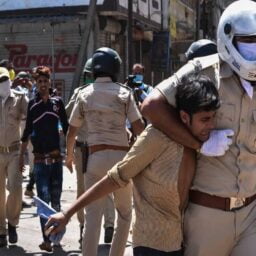
INTRODUCTION
The sudden Covid-19 pandemic has truly influenced definitive execution across the globe. Associations would acknowledge that when all else comes up short, the bargain is unavoidable. Maybe, or perhaps not. As the authentic cliché goes, “it depends”. If there ought to emerge an event of legitimate execution, it will depend upon a genuine and legal examination of the secret arrangements. The unexpected Covid pandemic has meddled with our own, capable, money-related, and business lives, to a condition of hindering best execution at all levels; regardless, conveying execution unfathomable. This article focuses on the effect of Covid-19 on the execution of plans, tended to by Indian law. It studies whether trouble of execution under Indian law is only a question of improvement of isolated arrangements, and expecting this is the situation, would organizations have the option to save their responsibilities and save their arrangements. Covid has either made execution problematic or incomprehensible. It has made business trouble a couple of social events in execution of their definitive responsibilities while conveying others unequipped for execution. The incomprehensibility of a lot more than one execution of an understanding is obliged under Section 56 of the Indian Contract Act, 1872 (ICA). Area 56 occurs in Chapter IV of the ICA which relates to the execution of arrangements and suggests overseeing one class of conditions under which execution of an understanding is exculpated or shed. It gives:
CENTRAL GOVERNMENT ACT
Section 56 in the Indian Contract Act, 1872
Agreement to do impossible act —An agreement to do an act impossible in itself is void.
- Agreement to do impossible act. An agreement to do an act impossible in itself is void. An agreement to do an act impossible in itself is void.” Contract to do act afterward becoming impossible or unlawful. A contract to do an act which, after the contract is made, becomes impossible, or, because of some event which the promisor could not prevent, unlawful, becomes void when the act becomes impossible or unlawful.[1]
From the outset become flushed, the legal arrangement stressed in para 2 of Section 56 would seem to become an integral factor completely in the Covid-19 situation. In any case, would this ‘inconceivability’ of execution sweepingly render each agreement void under Indian law, from the date of the difficulty? What is the ambit of ‘inconceivability’ and who is best positioned to decide it? How is hazard assigned in such circumstances? Does any arrangement in the ICA license gatherings save their agreements from being void consequently? The ideas of unexpected agreements, power majeure, and dissatisfaction are pertinent to comprehend the nuanced cures accessible to parties under their agreements in the Covid-19 situation. There might be circumstances where the unexpected occasion may deliver execution unthinkable just during the restricted time in which the occasion is inactivity, in this manner giving a window to continuing typical legally binding commitments after the occasional stops to work. The idea of power majeure becomes an integral factor in such circumstances.
As per Black’s Law Dictionary, the term ‘force majeure’ signifies an occasion or impact that can be neither foreseen nor controlled. It is utilized regarding all conditions autonomous of the desire of man, and which, it isn’t in his ability to control and such power majeure is adequate to legitimize the non-execution of an agreement.
Under English law, power majeure is an authoritative arrangement under which a gathering is qualified to drop the agreement or is pardoned from execution upon the event of indicated occasions past the gathering’s control. The key factor is to build up an immediate connection of causation between the occasion and the difficulty of execution to exhibit that the occasion is the sole reason for the powerlessness of the gathering to perform under the agreement.
Under Indian law, similar to English law, power majeure gets its reality from the agreement. The premise of this provision is to save the performing party from results of penetration emerging from an occasion over which it has no control. It is hence an exemption for penetration of the agreement. Regardless of whether power majeure can be conjured to pardon obligation for non-execution would rely upon the nature and general terms of the agreement, the occasions which go before or follow it, and current realities of the case.
In a circumstance imagining power majeure, it is upon the gathering to choose to summon the power majeure proviso in the agreement to pardon itself from execution under the agreement. Considering Covid-19, on February 19, 2020, the Ministry of Finance gave an Office Memorandum on ‘Power Majeure Clause’ giving that “Covid ought to be considered as an instance of common cataclysm and power majeure might be summoned, any place thought about fitting, following the due strategy (in the Office Memorandum)”.It gives that “a force majeure arrangement doesn’t exculpate a social affair’s non-execution by and large, yet suspends it for the length of the force majeure. The firm needs to pull out of power majeure when it happens and it can’t be asserted ex-post-facto… If the exhibition in entire or to a limited extent or on the other hand any responsibility under the understanding is prevented or delayed by any clarification of force majeure for a period outperforming ninety days, either assembling may at its decision end the concurrence with no financial repercussion on either side”. Even though gatherings to aforementioned contracts should respect the Office Memorandum, it may not fill in as a limiting record. In the event that a contest emerges concerning acknowledgment or dismissal of the Office Memorandum, it will rely upon the Court or the arbitral council to decipher the power Majeure proviso and survey if similar covers any arrangement for proof regarding endorsements or office memoranda as above to demonstrate an instance of power Majeure.
While the situation under laws deflect the residents/licensees from summoning the present COVID-19 pandemic and government lockdown as power Majeure occasions (except if explicitly under the agreement), considering the public authority mandates passed by a portion of the for occupants, for deferral of the lease, and so forth, and considering the weightiness of the current circumstance and the impact on the economy the Courts may receive a more adjusted in choosing questions in such manner will be exclusively on the translation and judgment of the Court. Having expressed the abovementioned, its best for gatherings to choose the correct methodology in the respect and evaluate their prerequisites, factor in their business connections, while property managers ought to inspect the need of proceeding with once the lockdown is lifted, residents/licensees to likewise be aware of monetary commitments of landowners and their interdependency on lease and so forth, gatherings to analyze the interest supply circumstance.
Author(s) Name: Mehul Shokeen (Fairfield Institute of Management and Technology)
[1]Indian Kanoon, Section 56 in The Indian Contract Act, 1872,https://indiankanoon.org/doc/648614/















